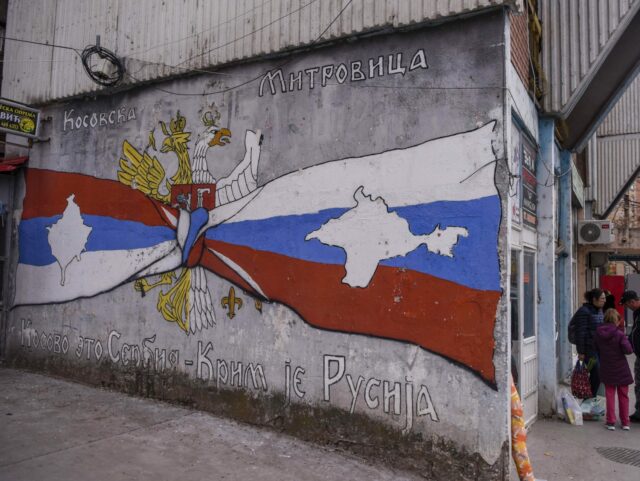BRUSSELS (AP) – The leaders of Serbia and Kosovo failed Thursday to reach an agreement on longstanding border and mutual recognition issues that have spiked tensions in the Balkans and added to Europe’s instability during the war in Ukraine, the European Union’s foreign policy chief said.
Serbian President and Kosovo Prime Minister Albin Kurti held talks in Brussels during a meeting that the EU’s top diplomat said took place “in a crisis management mode.”
Josep Borrell, the EU’s high representative for foreign affairs, announced after the meeting, “today, there is no agreement.” He said Kurti and Vucic did consent to more discussions in the coming days to hasten the process of normalizing ties between their countries, which were at war in 1998-99.
Kosovo is a former province of Serbia, which has refused to recognize the country’s 2008 declaration of independence. A NATO-led intervention in 1999 ended a war between Serbian forces and separatists in Kosovo and stopped Belgrade’s bloody crackdown against Kosovo Albanians.
The EU has overseen years of talks to normalize their ties, saying that’s one of the main preconditions for Kosovo and Serbia’s eventual membership in the 27-nation bloc. The purpose of Thursday’s meeting “was to calm down the situation on the ground,” Borrell said.
Tensions between Serbia and Kosovo soared anew late last month when Kurti’s government declared that Serbian identity documents and vehicle licence plates would no longer be valid in Kosovo’s territory.
Serbia has been implementing the same measures for Kosovo citizens crossing into Serbia for the past 10 years, saying if it recognized the Kosovo registration plates and documents it would mean it recognizes Kosovo as an independent country.
Minority Serbs, who live mostly in northern Kosovo, reacted with anger to the proposed change, putting up roadblocks, sounding air raid sirens, and firing guns into the air and in the direction of Kosovo police officers. No one was injured.
Under apparent pressure from the West, Kurti postponed the implementation of the measure for a month, to Sept. 1, when more trouble is expected if a compromise is not reached by then.
“We are at a critical time for Europe,” Borrell said. “After the Russia invasion of Ukraine, we are facing a dramatic and very dangerous moment for our continent, and this is not a moment for increasing tensions.”
“It is time for looking for solutions of long-standing issues,” he added.
In a video clip posted on Instagram, Vucic said he will address his nation on Friday.
“A difficult day is behind us, it was hard for all Serbian citizens, for whole of our country,” Vucic said. “I cannot say it ended successfully. But I hope and wish that by some miracle we could reach a compromise agreement in the days that are ahead.”
Along with Serbia, its allies Russia and China don’t recognize Kosovo’s independence, which is supported by the United States and most other Western states.
There are fears in the West that Russia could encourage Serbia into an armed intervention in northern Kosovo that would further destabilize the Balkans and shift at least some attention from Russia’s war in Ukraine.
AP writers Dusan Stojanovic and Jovana Gec contributed from Belgrade, Serbia.
Follow Breitbart London on Facebook: Breitbart London

COMMENTS
Please let us know if you're having issues with commenting.